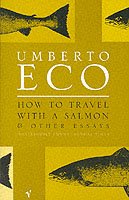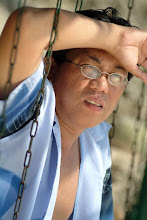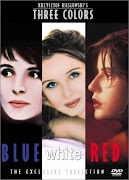 "One of the tragedies of real life is that there is no background music."
"One of the tragedies of real life is that there is no background music.":::
"And what we fear we often rage against."
:::
"... he was wondering if love came in other colors than the basic black of none and the read heat of obsession.."
:::
"Was love then like a bag of assorted sweets passed around from which one might choose more than once? Some might sting the tongue, some invoke night perfume. Some had centers as bitter as gall, some blended honey and poison, some were quickly swallowed. And among the common bull's-eyes and peppermints a few rare ones; one or two with deadly needles at the heart, another that brought calm and gentle pleasure. Were his fingers closing on that one?"
:::
"... we are only passing by. We only walk over these stones a few times, our boats float a little while and then they have to sink. The water is a dark flower and a fisherman is a bee in the heart of her."
From UMBERTO ECO's How To Travel With a Salmon and Other Essays
 "The mass media first convinced us that the imaginary was real, and now they are convincing us that the real is imaginary; and the more reality the TV screen shows us, the more cinematic our everyday world becomes. Until, as certain philosophers have insisted, we will think that we are alone in the world, and that everything else is the film that God or some evil spirit is projecting before our eyes." (How To React To Familiar Faces)
"The mass media first convinced us that the imaginary was real, and now they are convincing us that the real is imaginary; and the more reality the TV screen shows us, the more cinematic our everyday world becomes. Until, as certain philosophers have insisted, we will think that we are alone in the world, and that everything else is the film that God or some evil spirit is projecting before our eyes." (How To React To Familiar Faces):::
"A writer is someone determined to extend language beyond its boundaries, and he therefore assumes full responsibility for a metaphor, even a daring one." (How To Use Suspension Points)
:::
"It is enough to tell the truth. Naturally, truth comes in all sizes." (How To Write An Introduction To an Art Catalogue)
:::
"Human beings have always been merciless with animals, but when humans become aware of their own cruelty, they began, if if not to love animals (because, with only sporadic hesitation, they continue eating them), at least to speak well of them. As the media, the schools, public institutions in general, have to explain away so many acts performed against humans by humans, it seems finally a good idea, psychologically and ethically, to insist on the goodness of animals. We allow children of the Third World to die, but we urge children of the First to respect not only butterflies and bunny rabbits but also whales, crocodiles, snakes. Mind you, this educational approach is per se correct. What is excessive is the persuasive technique chosen: to render animals worthy of rescue they are humanized, toyified. No one says they are entitled to survive even if, as a rule, they are savage and carnivorous. No they are made respectable by becoming cuddly, comic, good-natured, benevolent, wise, and prudent... Simply put, we must love-- or, if that is downright impossible, at least respect-- these and other animals for what they are. The tales of earlier times overdid the wicked wolf, the tales of today exaggerate the good wolves. We must save the whales not because they are good, but because they are part of nature's inventory and they contribute to the ecological equilibrium. Instead, our children are raised with whales that talk, wolves that join the Third Order of St. Francis, and, above all, and endless array of teddy bears." (How To Speak of Animals)

























































No comments:
Post a Comment